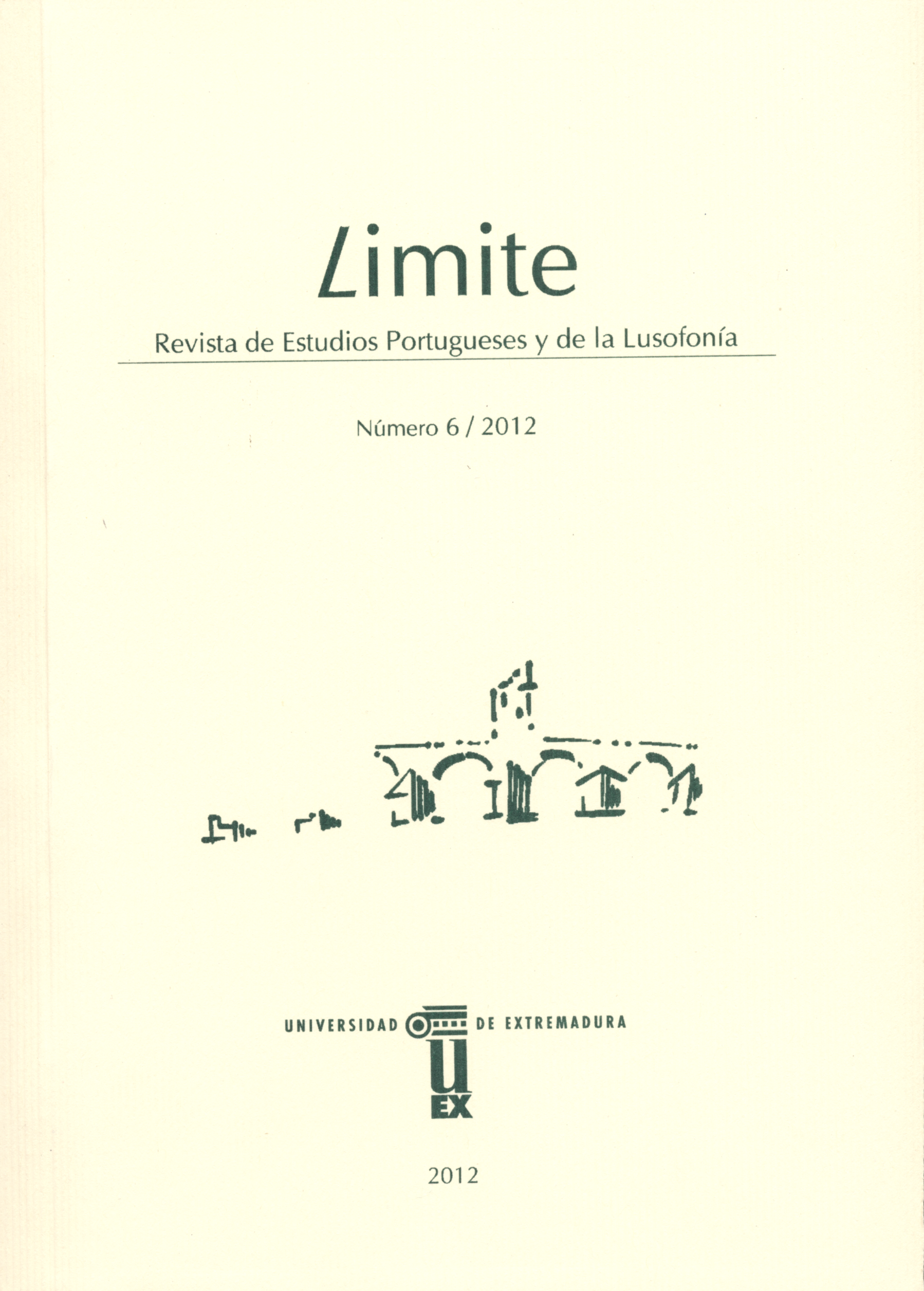The description of Portuguese pronunciation in the first grammars for German speakers
Keywords:
history of portuguese pronunciation, history of portuguese grammatography, 18th centuryAbstract
The article deals with the description of Portuguese pronunciation in
the three earliest grammars written in German (Junk 1778, Meldola
1785, Wagener 1800-1802), with special regard to the sound changes
which are supposed to have ocurred in this period. It will be
demonstrated how difficult it is to obtain reliable data, due to certain
factors that can impede an appropriate description. It is argued that,
bearing this in mind, metalinguistic texts of past times can nevertheless
be considered an important source for the reconstruction of
pronunciation.
References
Castro (1751): J. Castro, Grammatica Anglo-Lusitanica & LusitanoAnglica: or, a New Grammar, English and Portuguese, and Portuguese and English; divided into two parts. The second edition. To which is now added Grammatica Anglo-Lusitanica & LusitanoAnglica: ou, Grammatica Nova, Ingleza e Portugueza, e Portugueza e Ingleza. London, Meadows, Comyns (21751).
Compleat Account (1701): A Compleat Account of the Portugueze Language being a Copious Dictionary of English with Portugueze and Portugueze with English together with an Easie and Unerring Method of its Pronunciation, by a distinguishing Accent, and a Compendium of all the necessary Rules of Construction and Orthography digested into a Grammatical Form. [atribuído a Alexander Justice] (1701) London, Janeway.
Heinsohn (red.) (2006): Kirsten Heinsohn (red.), Das jüdische Hamburg. Ein historisches Nachschlagewerk. Herausgegeben vom Institut für die Geschichte der deutschen Juden. Göttingen, Wallstein.
Junk (1778): Johann Andreas von Junk, Portugiesische Grammatik. Nebst einigen Nachrichten von der portugiesischen Litteratur, und von Büchern, die über Portugall geschrieben sind. 2 vol. Frankfurt an der Oder, Strauß
Körner (1994): Karl-Hermann Körner, „Sobre Abraham Meldola e a sua Nova Grammatica Portugueza de 1785.“, em Studemund-Halévy, Michael; Koj, Peter (edd.): Die Sefarden in Hamburg. Zur Geschichte einer Minderheit. Erster Teil. Hamburg: Buske, pp. 375-382.
Meldola (1785): Abraham Meldola, Nova grammatica portugueza. =Neue portugiesische Grammatik. Hamburg, Bock.
Mühlschlegel (2011): Ulrike Mühlschlegel, „'A língua portuguesa já fez progressos na Alemanha': Johann Daniel Wagener e os primórdios da lexicografia bilíngue português-alemão". Antares 5, 4-19. Disponível em: http://www.ucs.br/etc/revistas/index.php/antares/article/view/900
Nagel (1980): Rolf Nagel, “Das erste deutsche Portugiesischlehrbuch (1778-1779)”. Historiographia Linguistica 7/3, 361-367.
Pinho (2006): Maria Isabel Carrilho Prates Pinho, Orthographia de Madureira Feijó: Edição e estudo de aspectos lexicográficos. Dissertação, Universidade de Aveiro, Departamento de Línguas e Culturas.
Révah (1959): I. S. Révah, “Comment et jusqu’à quel point les parlers brésiliens permettent-ils de reconstituer le système phonétique des parlers portugais des XVIe-XVIIe siècles?“, in III Colóquio Internacional de Estudos Luso-Brasileiros, Lisboa 1957. Actas. Vol. I. Lisboa, pp. 273-291.
Schäfer-Prieß (2006): Barbara Schäfer-Prieß, "Das pretérito perfeito composto bei Jerónimo Soares Barbosa und Francisco de São Luís.", in Endruschat, Annette; Kemmler, Rolf; Schäfer-Prieß, Barbara (edd): Grammatische Strukturen des europäischen Portugiesisch. Tübingen, Calepinus, 247-262.
Schäfer-Prieß/Schöntag (2012): Barbara Schäfer-Prieß e Roger Schöntag, Spanisch/Portugiesisch kontrastiv. Berlin, Boston, De Gruyter.
Teyssier (2007): Paul Teyssier, História da língua portuguesa. São Paulo, Fontes.
Vieyra (1777): Antonio Vieyra, A new Portuguese Grammar in 4 parts. London, Nourse.
Wagener (1800-1802): Johann Daniel Wagener, Portugiesische Sprachlehre. Nebst Uebungen zur Anwendung der Grundsätze der Wortfügung und Schreibart dieser Sprache. 2 vol. Hamburg, Vollmer.
Wagener (21807): Johann Daniel Wagener: Spanische Sprachlehre, Nebst Uebungen zur Anwendung der Grundsätze der Wortfügung und Schreibart. Leipzig, Crusius.
Downloads
Published
Issue
Section
License
Los derechos de los artículos publicados en esta revista son los que establece por defecto el Servicio de Publicaciones de la Universidad de Extremadura. Poseen una licencia de Creative Commons CC BY 4.0. Puede consultar la licencia en: Creative Commons
La política de acceso abierto de la Universidad de Extremadura acepta los principios del movimiento de acceso abierto y la declaración de Berlín. Por ese motivo, los autores aceptan que los artículos publicados se recojan en el repositorio DEHESA de esta universidad.
El autor del artículo puede publicarlo libremente en otros medios siempre que refiera esta revista como la depositaria del texto original.



